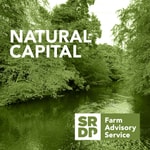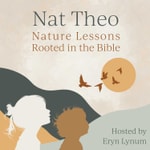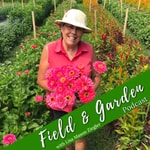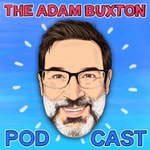Natural Capital – Details, episodes & analysis
Podcast details
Technical and general information from the podcast's RSS feed.

Natural Capital
Farm Advisory Service
Frequency: 1 episode/36d. Total Eps: 29

Recent rankings
Latest chart positions across Apple Podcasts and Spotify rankings.
Apple Podcasts
🇬🇧 Great Britain - nature
16/06/2025#89🇬🇧 Great Britain - nature
15/06/2025#75🇬🇧 Great Britain - nature
14/06/2025#62🇬🇧 Great Britain - nature
13/06/2025#44🇬🇧 Great Britain - nature
11/06/2025#91🇬🇧 Great Britain - nature
10/06/2025#72🇬🇧 Great Britain - nature
09/06/2025#60🇬🇧 Great Britain - nature
08/06/2025#38🇬🇧 Great Britain - nature
04/06/2025#85🇬🇧 Great Britain - nature
03/06/2025#68
Spotify
No recent rankings available
Shared links between episodes and podcasts
Links found in episode descriptions and other podcasts that share them.
See all- https://merlin.allaboutbirds.org/
208 shares
- https://sdgs.un.org/goals
149 shares
RSS feed quality and score
Technical evaluation of the podcast's RSS feed quality and structure.
See allScore global : 69%
Publication history
Monthly episode publishing history over the past years.
NatureScot Biodiversity Audits
Season 3 · Episode 5
mercredi 25 septembre 2024 • Duration 29:08
In this episode we speak to Celine Delabre from NatureScot to inform listeners on the upcoming requirement to complete biodiversity audits as part of the Whole Farm Plan and how NatureScot’s farm biodiversity app can help to deliver these in the future. We discuss the important details that farmers requiring the audit need to know to help them complete it and find out more about the NatureScot app.
From 2025 a Whole Farm Plan will be a mandatory condition for accessing future funding. This will involve all farmers and crofters undertaking a number of audits and plans relevant to their agricultural activities. By 15 May 2025 farmers are being asked to prepare for the Whole Farm Plan by undertaking at least two baseline plans or audits including a carbon audit, soil analysis, an animal health and welfare plan, an integrated pest management plan and a biodiversity audit.
Host Harry Fisher, Producer Iain Boyd, Executive Producer Kerry Hammond, Editor Kieron Sim.
Timestamps:
0:50 – 5:23 Intro to Whole Farm Plan and biodiversity audits
5:23 – 10:00 NatureScot biodiversity audit and ways to complete them
10:00 – 24:55 Story of the app being developed, data it uses and how it works
24:55 – end What NatureScot is learning from the audit, future plans and advice
Related FAS Resources
Natural Capital | Helping farmers in Scotland | Farm Advisory Service (fas.scot)
Other Related Resources
The Royal Highland Education Trust
Season 3 · Episode 4
jeudi 29 août 2024 • Duration 51:59
The Royal Highland Education Trust (RHET) is a charitable organisation that looks to bring farming, the working countryside, and Scotland’s Natural Capital to life for young people. The trust aims to connect Scotland’s youth to the countryside, and give insight into food, farming and countryside management in Scotland. The trust achieves this through a number of key activities, such as farm visits and providing educational resource materials for schools, along with much more.
Ensuring younger generations from both rural and urban communities are aware and understand where and how food is produced, and the countryside is managed, is vitally important in ensuring a thriving rural sector, and appreciation for Scotland’s Natural Capital and its conservation.
Today we are joined by Katrina Barclay from RHET to hear about what their organisation does and why.
Host Harry Fisher, Producer Iain Boyd, Executive Producer Kerry Hammond, Editor Ross Mackenzie.
Timestamps:
1:30 – 5:30 What is RHET and the type work they do
5:34 –7:05 The role that Natural Capital has
7:05 – 33:29 Farming and learning outcomes, benefits for children and the sector.
33:30 – 40:49 Incorporating land use change and sustainability issues.
40:50 - 50:15 How can teachers and farmers get involved
Related FAS Material:
Environment resources for farmers from Farm Advisory Service (fas.scot)
FAS Sounds | Helping farmers in Scotland | Farm Advisory Service
Other Related Materials:
The Royal Highland Education Trust | Royal Highland Education Trust (rhet.org.uk)
Food: The Facts | Royal Highland Education Trust (rhet.org.uk)
Calpa Nàdarra – Gaelic, culture and crofting
Season 2 · Episode 7
mardi 31 octobre 2023 • Duration 39:01
In this episode of Natural Capital Ross Mackenzie and Janette Sutherland visit Sam Thorburn’s croft on the Isle of Skye. They discuss the natural capital on the islands, Gaelic culture, biodiversity, and crofting life. Gaelic language provides a unique insight and understanding of Scotland’s nature, helping us to understand it better. Central to all Natural Capital is people; our heritage, language, and communities are all important considerations. They provide valuable lessons and traditional ways of doing things, helping to develop successful natural capital projects and effective policy.
Guest hosts Ross Mackenzie and Janette Sutherland.
Host Rachel Smillie, producer Iain Boyd, executive producer Kerry Hammond, editor Ross Mackenzie.
Related FAS resources:
FAS Sounds: https://www.fas.scot/sounds/
FAS Biodiversity Pages: https://www.fas.scot/environment/biodiversity/
FAS Crofts & Small Farms: https://www.fas.scot/rural-business/crofts-small-farms/
Other Related Resources:
Bòrd na Gàidhlig: https://www.gaidhlig.scot/en/
Crofting Commission: https://www.crofting.scotland.gov.uk/
Gaelic within NatureScot: https://www.nature.scot/gaelic
John Muir Trust Wild Words - Reading the Land: https://www.johnmuirtrust.org/whats-new/news/39-wild-words-reading-the-land#:~:text=Meall%2C%20ubiquitous%20on%20the%20map,is%20a%20high%2C%20rocky%20hill
Loch Lomond & The Trossachs National Park Authority - Our Gaelic Culture: https://www.lochlomond-trossachs.org/discover-the-park/our-heritage-culture/our-gaelic-culture/
Drones, Data and Decision Making
Season 2 · Episode 6
mercredi 27 septembre 2023 • Duration 38:25
In this episode of Natural Capital we are getting techy, discussing all things drones, data and technology and how this can be used by land managers to assess, monitor and improve their natural capital assets. Understanding the natural capital you have on your land, its condition and scale is essential to effective land management.
To help us understand this better we are joined by Jack Zuill, who is a consultant experienced in using technology to monitor and assess natural capital assets. This includes the use of drones and satellite-derived remote sensing data to optimise environmental monitoring and decision-making. We talk through some of his recent projects including peatlands and above-ground carbon quantification, as well as different sensors, data collection, legislation and modern advancements.
Host Rachel Smillie, Producer Kerry Hammond, Executive Producer Kerry Hammond, Editor Ross Mackenzie
Timestamps
1:42 – 12:24 Introduction to drones/UAVs, sensors and data
12:25 – 19:55 Drones and satellites for monitoring and quantifying natural capital
19:55 – 30:28 Farm carbon storage network, carbon credits, peatland and Glencripesdale projects
30:29 – 37:07 Trusting data, baselining, digital twins, scale and analysis
Related FAS Resources
FAS Sounds | Helping farmers in Scotland | Farm Advisory Service
Biodiversity | Helping farmers in Scotland | Farm Advisory Service (fas.scot)
UAVs in Agriculture | Farm Advisory Service (fas.scot)
Other Related Resources
Jack Zuill - Environmental Consultant - SAC Consulting | LinkedIn
BBC Scotland - Landward, 2023, Episode 4
Dreams of recovery for Scotland’s rainforest given a boost (rspb.org.uk)
Farm Carbon Storage Network | SRUC
Video - Decision grade data at Glencripesdale
The Drone and Model Aircraft Code | UK Civil Aviation Authority (caa.co.uk)
Landscape Scale Collaboration
Season 2 · Episode 5
jeudi 31 août 2023 • Duration 24:31
Protecting, valuing and restoring natural capital at the landscape scale requires a joined-up effort and collaboration amongst different landowners and groups. In this episode we are joined by Ross MacLeod from the Game and Wildlife Conservation Trust to talk about landscape scale and collaborative farming initiatives.
We discuss the importance of collaboration, GWCTs ‘Farm Clusters’ approach; what they are and why they have set them up, and their involvement in NatureScot’s Natural Capital Pilot. Natural Capital is central to wildlife management and conservation in Scotland and we discuss the importance of evidence-based best practice, nature-friendly land management and biodiversity net gain.
Host Rachel Smillie, producer Iain Boyd, editor Ross Mackenzie, executive producer Kerry Hammond.
Timestamps
The importance of Natural Capital for GWCT: 2:24 – 5:04
Farm clusters and landscape scale solutions: 5:04 – 8:45
How can a farmer set up a farm cluster?: 10:53 - 11:50
Public and private funding and finance: 12:32 - 16:11
Natural Capital assessments, tools and actions: 16:20 – 23:15
Related FAS Resources
Biodiversity | Helping farmers in Scotland | Farm Advisory Service (fas.scot)
FAS Sounds | Helping farmers in Scotland | Farm Advisory Service
Other Related Resources
Farmer Clusters - For farmers, facilitators and advisors
Scottish Demonstration Farm - Game and Wildlife Conservation Trust (gwct.org.uk)
The Allerton Project | Game & Wildlife Conservation Trust (allertontrust.org.uk)
Sussex Study - Game and Wildlife Conservation Trust (gwct.org.uk)
Natural Capital Assessment Tool - A Whole Farm Approach | NatureScot
Farming in a National Park
Season 2 · Episode 4
lundi 31 juillet 2023 • Duration 29:03
The Scottish Government is committed to establishing a new National Park by spring 2026. It has released an appraisal framework and is looking for local areas to submit expressions of interest.
The aims of National Parks are to conserve nature and the landscape, while also providing provisions for the enjoyment of the area and promote sustainable development. Restoring natural capital is embedded in National Park policy and the new form of integrated land management may result in changes for communities and rural businesses within the new National Park.
On this episode we are speaking to Freda and David Scott-Park from Portnellan, an organic farm within the Loch Lomond and Trossachs National Park boundary, to get their views and experiences of farming within a National Park.
Timestamps
The impact of national parks on the rural landscape and farming: 2:55 – 5:21
Nature friendly farming, diversification and biodiversity: 5:22 – 13:33
Beaver reintroduction: 13:34 – 18:32
Alignments of natural parks, communities and farming aims: 18:33 – 25:32
Views on a new national park: 26:08 – 28:30
Related FAS Resources
Re-wilding Beavers | Helping farmers in Scotland | Farm Advisory Service (fas.scot)
Farm Woodland resources for farmers from Farm Advisory Service (fas.scot)
Biodiversity | Helping farmers in Scotland | Farm Advisory Service (fas.scot)
FAS Sounds | Helping farmers in Scotland | Farm Advisory Service
Other Related Resources
Home - Cairngorms National Park Authority
Nature Friendly Farming Network - Sustainable Farming (nffn.org.uk)
New National Parks - appraisal framework - Scottish Government - Citizen Space (consult.gov.scot)
Next steps for national parks in Scotland - gov.scot (www.gov.scot)
30 Days Wild - Farm Wildlife Walks
Season 2 · Episode 3
jeudi 29 juin 2023 • Duration 40:13
Understanding the natural capital assets you have on your land is really important. Farm wildlife walks are a great way to map out features, habitats and biodiversity that is present in the agricultural landscape. It can help you baseline your natural capital and look for opportunities for improvement on farm. As part of The Wildlife Trusts 30 Days Wild campaign we go for a walk with Mary-Jane Lawrie on her farm in the Lothian’s and discuss hedges, wetlands and the biodiversity we see, along with the management and tools being used. We then head back to the office and are joined by David Brown to discuss the walk he has recently undertaken on a farm in the Borders and the benefits he has seen.
We all need to be concerned about biodiversity loss and agriculture has an important part to play. Farms across Scotland are already doing a lot of great things to manage the habitats they have to the best of their ability and support wildlife. We explore some of the simple and small things that can be done on farm to further benefit nature and the farm business.
Host Rachel Smillie, producer Iain Boyd, editor Ross Mackenzie, executive producer Kerry Hammond.
Timestamps
How Highlands Rewilding started and defining rewilding: 1:35 – 3:39
Intro to the farm, 30 Days Wild and farm wildlife walks: 0:45 – 6:35
The farm wildlife walk, the biodiversity we see and useful tools: 6:40 – 11:48
Benefits to the farm, resources and the value of nature: 11:49 – 20:22
Back in the office, David’s walk and wildlife corridors: 21:41 – 25:53
Baselining, farm benefits and working with nature: 25:52 – 35:04
Wider work and resources: 35:05 – 39:08
Related FAS Materials
Farm Wildlife Walks - Southwest https://www.fas.scot/publication/farm-wildlife-walks-southwest/
Integrated Land Management Plans: https://www.fas.scot/integrated-land-management-plans-ilmps/
Specialist Advice: https://www.fas.scot/specialist-advice/
FAS Biodiversity Pages: https://www.fas.scot/environment/biodiversity/
FAS Sounds: https://www.fas.scot/sounds/
Other Related Resources
The Wildlife Trusts 30 Days Wild: https://www.wildlifetrusts.org/30dayswild
AECS: https://www.ruralpayments.org/topics/all-schemes/agri-environment-climate-scheme/
Seek App: https://www.inaturalist.org/pages/seek_app
Merlin Bird ID: https://merlin.allaboutbirds.org/
RSPB Farming - https://www.rspb.org.uk/our-work/conservation/conservation-and-sustainability/farming/
Highlands Rewilding
Season 2 · Episode 2
vendredi 12 mai 2023 • Duration 23:27
We talk to Dr Jeremy Leggett from Highlands Rewilding, who are aiming to rewild and repopulate the highlands through a business model focusing on enhancing and restoring natural capital. Doing this they want to support Nature Based Solutions, reduce biodiversity loss and cut UK carbon emissions. Jeremy discusses the role they play and the challenges of balancing nature, farming, traditional ways of life, jobs and a profitable business. We talk about what the term ‘Rewilding’ means, why and how they measure natural capital on their estates and the innovative technology and techniques they use. We also discuss the exciting plans they have for their newly purchased Tayvallich estate and how their plans for managing the natural capital include the local community and the potential to provide local green jobs.
The Earth’s soils, rocks, air, water, plants and animals are all valuable resources that provide a wide range of services and benefits. These resources need to be carefully managed and maintained to support a healthy functioning environment. In this Natural Capital podcast series, we explore different natural capital assets and their value to Scottish agriculture and the rural economy, including the opportunities and risks for the future.
Host Rachel Smillie, producer Iain Boyd, editor Kieron Sim, executive producer Kerry Hammond.
Timestamps
How Highlands Rewilding started and defining rewilding: 1:35 – 3:39
Making natural capital a profitable business and monitoring biodiversity: 3:40 – 9:41
Community engagement and involvement: 9:42 – 11:41
Tayvallich; ecology, community, jobs and opportunities: 11:42 – 17:43
Balancing economy, rural life and farming with nature and biodiversity: 17:44 – 22:56
Related FAS Resources
Scotland's Rainforests | Information helping farmers in Scotland | Farm Advisory Service (fas.scot)
Seaweed | Information helping farmers in Scotland | Farm Advisory Service (fas.scot)
Natural Capital: reasons for measuring the baseline of natural capital in a landscape - YouTube
FAS Sounds | Helping farmers in Scotland | Farm Advisory Service
Biodiversity | Helping farmers in Scotland | Farm Advisory Service (fas.scot)
Other Related Resources
Highlands Rewilding - Rewilding Scotland
Jeremy Leggett – Climate, energy, tech, and the future of civilisation
UN Biodiversity Conference (COP 15) (unep.org)
Decision grade data at Glencripesdale - a case study in thriving natural capital on Vimeo
Bees, Butterflies and Biodiversity
Season 2 · Episode 1
vendredi 28 avril 2023 • Duration 47:36
We begin our second series of Natural Capital exploring Bees, Butterflies and Biodiversity with Dr Lorna Cole, an agricultural ecologist whose work addresses the challenge of feeding our growing world population whilst protecting our environment. We discuss beneficial insects, habitats and biodiversity, including the many pollinators found in Scotland. Pollinators play important roles but face multiple pressures and we discuss how agricultural practices influence these insects and the ecosystem services they deliver. We explore what you can do to protect and enhance species and habitat.
The Earth’s soils, rocks, air, water, plants and animals are all valuable resources that provide a wide range of services and benefits. These resources need to be carefully managed and maintained to support a healthy functioning environment. In this Natural Capital podcast series, we explore different natural capital assets and their value to Scottish agriculture and the rural economy, including the opportunities and risks for the future.
Hosted and produced by Iain Boyd, with Rachel Smillie and Fiona Salter, editor Kieron Sim, executive producer Kerry Hammond.
Timestamps
The importance and value of biodiversity: 3:30 – 15:43
Pollinators in Scotland and their roles on farm: 15:44 – 21:55
What land managers can do to boost pollinators and habitats: 21:55 – 35:33
Managed bees, beekeeping and native pollinators: 35:33 – 43:16
Benefits for other pollinators: 43:16 – 46:00
Related FAS Resources
Insect Pollinators & Pollination | Helping farmers in Scotland | Farm Advisory Service (fas.scot)
The Great Yellow Bumblebee | Helping farmers in Scotland | Farm Advisory Service (fas.scot)
FAS Sounds | Helping farmers in Scotland | Farm Advisory Service
Biodiversity | Helping farmers in Scotland | Farm Advisory Service (fas.scot)
Other Related Resources
Welcome to the UK Pollinator Monitoring Scheme (PoMS) | PoMS (ukpoms.org.uk)
How farming with nature brings pollinators back to arable farms (soilassociation.org)
Home page | Butterfly Conservation (butterfly-conservation.org)
Ecosystem Markets and Green Commerce
Episode 6
mercredi 11 janvier 2023 • Duration 46:34
In our final episode of the series we are discussing the important financial topics which cover most natural capital projects, including ecosystem markets and green commerce. We discuss potential funding and revenue options for natural capital, and importantly what are the risks and future opportunities for agriculture and landowners in Scotland. Investing in nature can help to improve our environment, drive a green economy, tackle global issues such as climate change and make the world a better place for both society and biodiversity.
Professor Mark Reed is an expert in Rural Entrepreneurship and the Co-Director of the Thriving Natural Capital Challenge Centre at Scotland’s Rural College (SRUC). He is a transdisciplinary researcher specialising in environmental governance, ecosystem markets and research impact. He is a visiting professor at several universities, CEO of Fast Track Impact, Research Lead for the IUCN UK Peatland Programme where he sits on the Executive Board of the Peatland Code, and is also Co-Chair of UNEP’s Global Peatland Initiative Research Working Group.
The Earth’s soils, rocks, air, water, plants and animals are all valuable resources that provide a wide range of services and benefits. These resources need to be carefully managed and maintained to support a healthy functioning environment. In this Natural Capital podcast series, hosted by Rachel Smillie we explore different natural capital assets and their value to Scottish agriculture and the rural economy, including the opportunities and risks for the future.
Hosted by Rachel Smillie, produced by Iain Boyd, editor Kieron Sim, executive producer Kerry Hammond.
Timestamps
Putting a financial value on nature : 1:50 - 6:56
Requirements and controls for land and carbon markets : 6:57 – 11:13
Opportunities and risks for farmers : 11:14 – 22:50
Money for nature restoration projects : 26:18 – 38:00
Balancing science, business and farmers needs : 38:00 – 44:55
Related FAS Resources
Advice & Grants | Helping farmers in Scotland | Farm Advisory Service (fas.scot)
FAS Sounds | Helping farmers in Scotland | Farm Advisory Service
Environment resources for farmers from Farm Advisory Service (fas.scot)
Other Related Resources
Professor Mark Reed, SRUC, UK (profmarkreed.com)
Thriving natural capital | SRUC
Scottish Nature Finance Pioneers – Grow, Restore, Prosper | NatureScot









